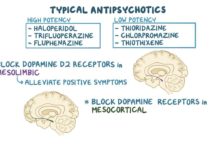An arrhythmia is an abnormal heart rhythm or heartbeat. It may feel like a fluttering or racing of the heart.
There are two basic types of arrhythmias:
- Bradycardia — the heartbeat is too slow, resulting in a heart rate of less than 60 beats per minute
- Tachycardia — the heartbeat is too fast, resulting in a heart rate greater than 100 beats per minute
Some arrhythmias are harmless and may have no noticeable symptoms.
Causes and Risk Factors of Arrhythmias
Arrhythmias happen when the electrical signals that control your heartbeat don't work properly.
This can happen if the specialized heart cells that send the electrical signals are damaged or if the electrical signals don't travel properly through the heart.
A normal heartbeat can also be disrupted if the heart produces too many electrical signals.
Sometimes the cause of an arrhythmia is unknown.
Arrhythmias are common in older adults, who are more likely to have heart disease, high blood pressure, and other health conditions that can cause arrhythmias.
Some medications can also cause arrhythmias as a side effect, including tricyclic antidepressants (TCAs), antihistamines, and beta-blockers.
Additionally, illegal drugs, such as cocaine, methamphetamines, and stimulants including caffeine and nicotine can cause arrhythmias.
Common risk factors for arrhythmias include:
- Heart attack
- Heart failure or cardiomyopathy
- Abnormal heart valves
- Congenital (present at birth) heart defects
- High blood pressure
- Sleep apnea
- Smoking
- Thyroid problems
- Extreme emotional stress or anger
Duration of Arrhythmia
The duration of arrhythmia depends on the cause. For example, when an arrhythmia is caused by a treatable condition, like an overactive thyroid, the irregular heartbeat may go away when the thyroid problem is treated.
Additionally, some arrhythmias can be treated with simple home exercises called vagal maneuvers to help control heart rate.
Some vagal maneuvers include:
- Gagging or coughing
- Holding your breath and bearing down
- Putting your fingers on your eyelids and pressing down gently
- Dunking your face in ice water
Vagal maneuvers aren't right for everyone, and they work only for certain types of arrhythmias.
Prevention of Arrhythmia
Not all cardiac arrhythmias can be prevented. Still, there are steps you can take to reduce risk factors.
You can reduce your risk of an arrhythmia caused by coronary artery disease by:
- Eating a heart-healthy diet rich in fruits and vegetables and avoiding saturated and trans fats
- Maintaining a healthy weight
- Getting regular exercise
- Controlling high blood pressure and cholesterol
- Quitting smoking
Research and Statistics: How Many People Have Arrhythmia?
Related Conditions and Causes of Arrhythmia
Certain conditions make arrhythmias more likely, including hyperthyroidism, or an overactive thyroid, and sleep apnea.
Resources We Love
Favorite Organizations for Essential Information About Arrhythmia
American Heart Association (AHA)
The AHA is the nation’s leading organization for heart health and heart-related disorders. Learn about symptoms, diagnosis, and monitoring of arrhythmia, as well as tips for prevention and treatment of a heart rhythm disorder.
UpBeat.org
UpBeat.org is a subsite of the Heart Rhythm Society, an international non-profit organization representing medical and science professionals from more than 70 countries who specialize in cardiac rhythm disorders. Get the facts on arrhythmias and search the organization’s database for a certified heart specialist near you.
CardioSmart
CardioSmart is a patient engagement program from the American College of Cardiology (ACC) that provides information and resources on heart conditions. The ACC is committed to empowering patients to make better informed decisions about their health and has created digital “decision aids” to help those living with heart conditions like Afib navigate different treatment options.
Favorite Arrhythmia Support Group
My Afib Experience
Through this support network from the AHA, you can join a community of people with atrial fibrillation. Share your experiences and connect with others who are dealing with the same struggles of living with an arrhythmia.
Favorite Resource to Become an Advocate
Arrhythmia Alliance
Arrhythmia Alliance is a coalition of charities, patient groups, caregivers, and medical professionals with the mission to raise awareness and advance treatment and quality of life for people living with cardiac arrhythmias. Check out their website for opportunities to volunteer and participate in World Heart Rhythm Week, an annual awareness week that focuses on detecting arrhythmias through local events and social media campaigns.
Additional reporting by Lindsey Konkel.
Editorial Sources and Fact-Checking
- Heart Arrhythmia: Symptoms and Causes. Mayo Clinic. August 9, 2020.
- Arrhythmia. MedlinePlus. October 21, 2020.
- Causes of Cardiac Arrest. American Heart Association. March 31, 2017.
- Arrhythmia. National Heart, Lung, and Blood Institute.
- Cardiac Arrhythmias. Harvard Health. February 2019.
- Medications for Arrhythmia. American Heart Association. September 30, 2016.
- Pacemaker. American Heart Association. September 30, 2016.
- Implantable Cardioverter Defibrillator (ICD). American Heart Association. September 30, 2016.
- Atrial Fibrillation. American Heart Association.
- Atrial Fibrillation. Centers for Disease Control and Prevention. September 8, 2020.
- Shaan K, Choi S, Weng L, et al. Frequency of Cardiac Rhythm Abnormalities in a Half Million Adults. Circulation: Arrhythmia and Electrophysiology. June 28, 2018.
- Rane S, Patton K. Impact of Sex and Ethnicity on Arrhythmic Risk. Current Cardiology Reports. July 2015.
- Chen M, Parikh N, Merkler A, et al. Risk of Atrial Fibrillation in Black Versus White Medicare Beneficiaries With Implanted Cardiac Devices. Journal of the American Heart Association. February 11, 2019.
- Hypothyroidism (Overactive Thyroid): Diagnosis and Treatment. Mayo Clinic. November 14, 2020.
- Sleep Apnea: Diagnosis and Treatment. Mayo Clinic. July 28, 2020.













































